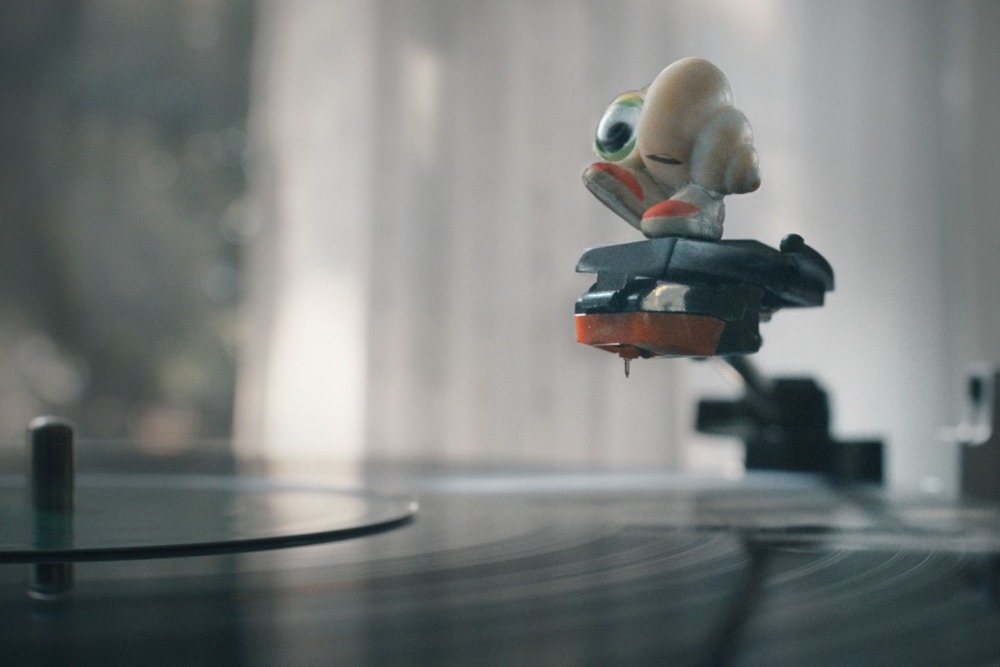
Many of this year’s Oscar nominees took a long time to make, but “Marcel the Shell with Shoes On” might just take the cake. The stop-motion mockumentary about the lovable talking shell voiced by Jenny Slate started its initial journey back in 2010, when Slate and filmmaker Dean Fleisher Camp made a brief short film about the creature that went viral. The creators turned that overnight celebrity into a plot point for the eventual movie, which they spent years assembling with a homegrown DIY approach. It ultimately took seven years from concept to execution.
“Marcel the Shell” follows the whimsical character as he talks about his innocent life with his grandmother shell and human owner. In the midst of his rising fame, Marcel embarks on a quest to find more shells like himself. The movie’s winning blend of comedy and poignance was a surprise to many audiences when it first surfaced at the Telluride Film Festival in 2021 as an acquisition title; it was later picked up by A24 and became a modest hit. All of that, on top of the eventual Oscar nomination, helped validate the lengthy gestation period for Marcel’s creators.
“I think if we hadn’t been inventing new things, it wouldn’t have taken us that long,” Camp said in a conversation with Slate for IndieWire’s Awards Season Spotlight series. “The first year was us trying to figure out the production model.” With co-writer Nick Paley, he cultivated a unique approach built around freewheeling recording sessions with Slate, “one of the world’s best improvisers.” Camp (who plays a fictionalized version of himself in the movie opposite Slate’s animated character) would toss prompts to Slate and record the audio, which they would edit and transform into the foundation for the screenplay. “We backed into this iterative process of Nick and I writing for a few months, then we record for some period of time with Jenny, then we go back and write again,” he said. “We had room to explore.”
In the process, Slate realized she could riff endlessly in character. “It seemed like we knew all the answers to questions that someone might ask him,” she said. “Even if we would ask a question he didn’t know, he could explain why he didn’t know it. He did always seem like he was alive. We never seemed to put too much pressure on his existence.”
It remains unclear whether Slate and Camp, who share the movie’s Oscar nomination with fellow producer Elisabeth Holm, will return to the character for another installment. But if they do, Slate said, it wouldn’t take another seven years to get it done.
“If there’s a world where we get to do more with this character, I think there was a lot we troubleshot,” she said. “We learned how to make this, keep a library of Marcel’s random riffs that maybe we could fit in different places, all that kind of stuff. We also now know what feels right and wrong. There’s been a lot of stuff we don’t have to learn again.”
Camp agreed. “People assume it took a long time because it’s stop motion,” he said. “I think for a stop motion [project], ours was shorter than most. But it did take a long time to figure out the technology, the workflow, how to combine these two worlds.”
Slate said she was most satisfied by the way the character seemed to exist in a naturalistic environment despite the obvious fictional context. “It is totally encased in realness,” she said. “There’s the voice, but then there’s like the realization of the character.”
Watch the full conversation above and check out the rest of IndieWire’s Awards Spotlight conversations here.













